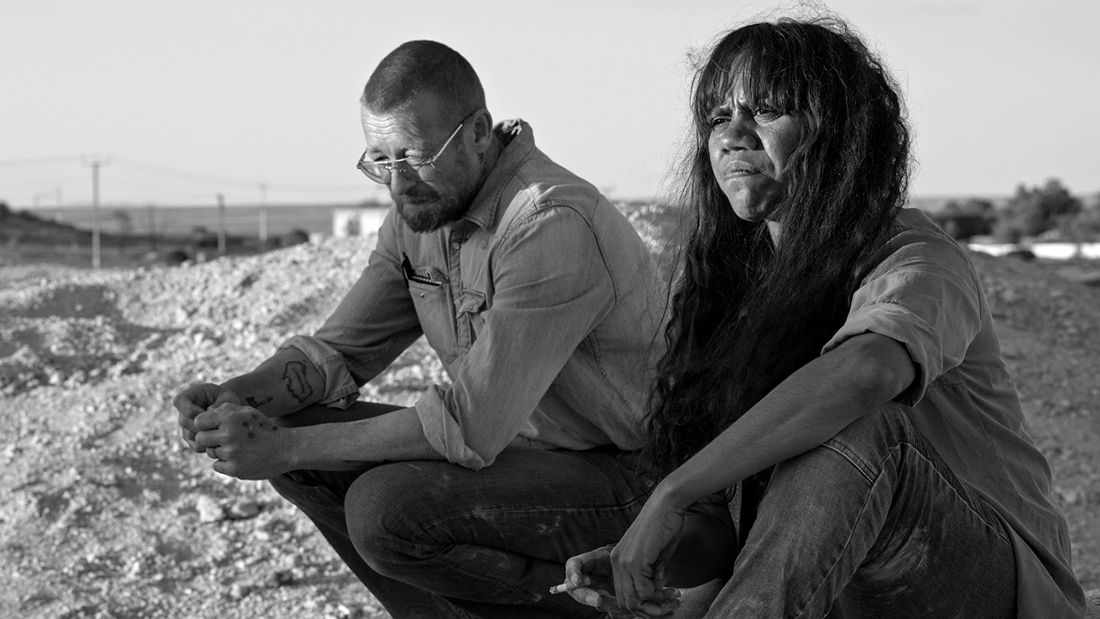
Review: Limbo – Crimes of the outback
Directed by Ivan Sen
Starring Simon Baker, Rob Collins, Natasha Wanganeen, Nicholas Hope
6.5/10
There’s some moments of character tension and even catharsis in this new slow crime film that places more emphasis on character changes than solving the crime itself. But it gets too laid back too often, making Limbo sometimes as dry as the arid landscape it takes place in.
Police detective Travis (Simon Baker) is hired to drive up to the small outback town of Umoona to investigate the newly reopened case of a young Indigenous woman who was murdered 20 years ago. Travis is visibly hesitant about reopening the case, as is the community, in particular the missing woman’s brother, the distant Charlie (Rob Collins), and her sister Emma (Natasha Wanganeen), who’s just trying to live her life with her job and kids. Travis’ presence is a rude reminder of their pain, particularly as it’s assumed nothing will come out of this new investigation – other than more heart-ache.
Writer-director Ivan Sen’s previous work, like his film Mystery Road, have a similar concept of a police investigation over a young woman’s murder in an Indigenous community. Although that film was more accessible and conformed more to its genre, it was far more exciting, full of more interesting turns in the story, and even ended on an exciting shoot-out.
Limbo feels like Mystery Road’s arthouse sibling, a slow-moving film shot in black and white and in many long static shots, showing the characters standing in their wide open environments. Along with the story that doesn’t seem very full, it can become a drag at times. There is intrigue in the storytelling, in the tension between characters, and even in the filmmaking. But other times the film feels like a slog, almost on purpose, and seeing just how little the story gets filled up comes across as disheartening towards the end.
There’s certainly compassion that this film manages to squeeze out of what looks like an otherwise dire situation. This does lead to a rather clean, but appropriate conclusion that gives hope to this story, with Taylor leaving feeling like maybe he actually had an impact after all. It gives the film a bit of meaning, when before it appeared to be lacking purpose.
DAVID MORGAN-BROWN
